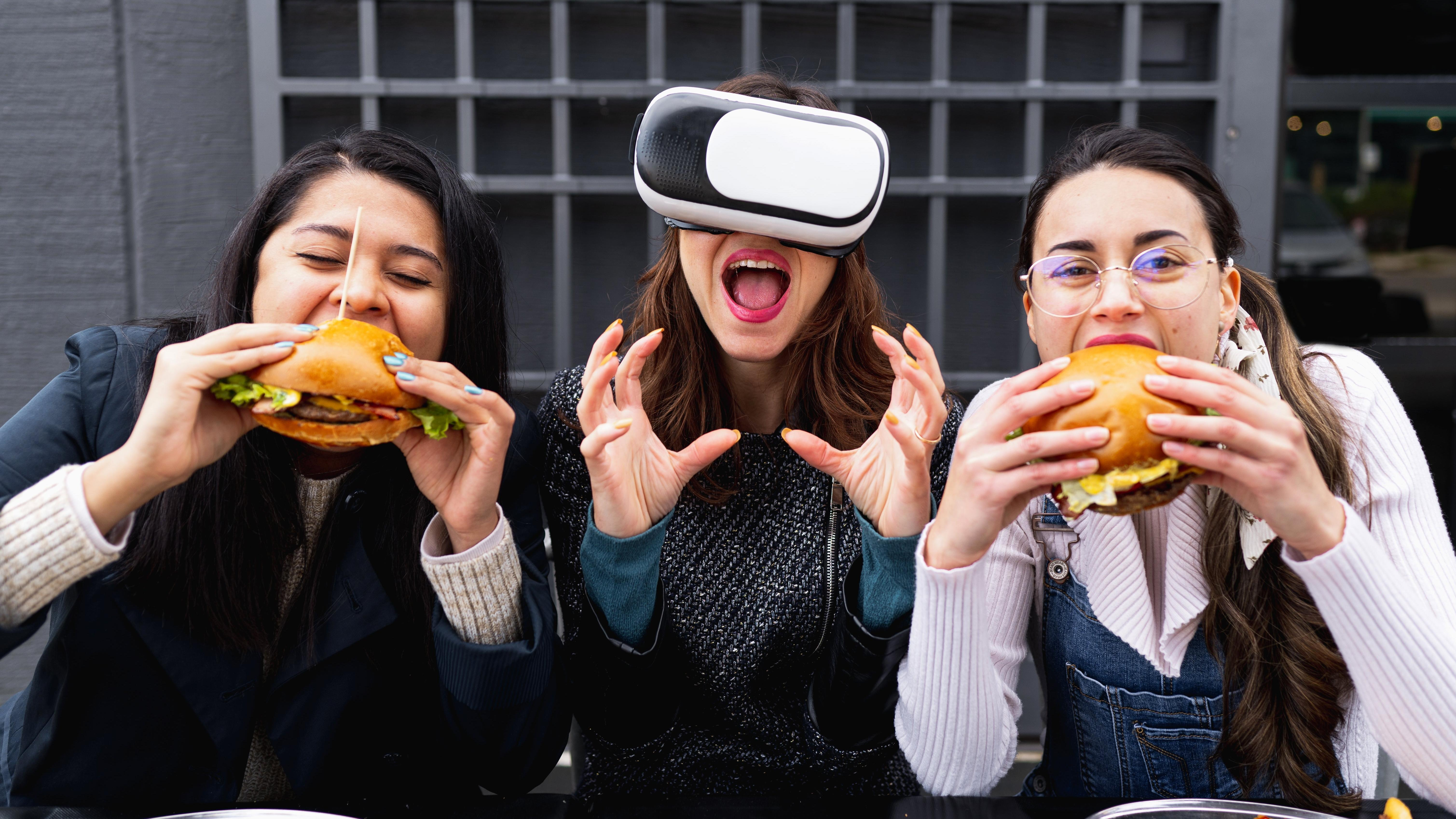WTF Does It Mean To Run A Restaurant In The Metaverse?
Is this real life? Am I eating a hologram? Please help.
Disclaimer: I am not a crypto-loving, metaverse-living kind of person at all. In fact, I've actively shied away from anything even somewhat related to this alleged wave of the future, because it just doesn't pique my interest.
However, we've officially reached the point where I can no longer ignore the fact that some of my favorite fast food chains such as Burger King, Panera, Panda Express, Wendy's, Chipotle, Wingstop, and McDonald's (just to name a few) are stepping into this new virtual world. But what does that even mean, really?
Here's what my noob mind has managed to grasp when it comes to restaurants in the metaverse.
First, what is the metaverse?
What a loaded topic to explain, but I'll try to sum this up in the simplest way I can. And all of you meta-lovers out there, please do not crucify me for this comparison. It's the best way I can understand it: The metaverse is basically like The Sims.
In the metaverse, you have an avatar that lives a whole life within this greater virtual world. Your avatar works, shops, and eats in the metaverse. Eating is, of course, the means through which real-world restaurant brands are establishing themselves in the metaverse. Just like in The Sims—although the process is more complicated—you can also build establishments and essentially create your own little habitat within the world. (It's also like Animal Crossing: New Horizons in that way.)
The biggest difference here is that the metaverse is seeking to replicate the complexity of real life, and even influence your real life, with paid products and services that find ways to exist both on and off the virtual platform. Brands are working to figure out how to drive IRL purchases through the metaverse, and that includes chain restaurants.
What restaurants are doing in the metaverse
As trade publication Nation's Restaurant News reports in its Tech Tracker section, Wendy's and Chipotle have each recently entered the metaverse with two different approaches to the experience.
Wendy's has built the Wendyverse, where participants in Horizon Worlds (a metaverse platform built by Meta, aka Facebook) can take their avatars to a virtual Wendy's restaurant and enjoy some virtual food with their virtual friends. Players (I guess they're considered players because there are games involved?) can play mini games in the Wendyverse as well. That's about it.
But there's a real world tie-in, too, according to a press release: Wendy's offered an "IRL" Sausage or Bacon, Egg & Cheese Biscuit for a discount price of $1 to customers from April to May 1 to celebrate the rollout. If you visit the Wendyverse site right now, you'll see an offer account holders a free 10-piece Nugget. But there's not much connection between these offers and the Wendyverse itself; it's just to encourage more people to consider visiting a virtual Wendy's platform.
On the flip side, Chipotle decided to "gamify" the experience of being in an actual Chipotle by inviting Roblox players (another online game platform) to build a virtual burrito. The experience has a much stronger tie-in to real world benefits because the first 100,000 players to make their burrito in the metaverse earned "Burrito Bucks," which they could then exchange for a coupon code to get a free entree at a Chipotle location in the real world.
"We've tapped into play-to-earn, an emerging engagement model in the metaverse, to launch our newest experience on Roblox that celebrates the iconic Chipotle burrito," said Chris Brandt, Chief Marketing Officer at Chipotle, in a press release. "We're blending the metaverse and real-world elements of our brand to take the Chipotle fan experience to a whole new level."
It looks like this is the main driver for all restaurants dipping their toes into the metaverse: finding ways for people to earn in-universe rewards, and further interweaving those rewards with each chain's IRL existing app-based loyalty programs. As for us, the customers, if you're not interested in the metaverse or creating a virtual version of yourself to get a free burrito, then there's no rush to create an avatar. For now, it's just one of many marketing channels that fast food chains are taking advantage of.
Hopefully you understand a little bit more about the metaverse now, and why restaurants even care about being a part of it. At the very least, we now know that Chipotle seems to understand a real-life burrito tastes a lot better than a metaverse-built one.
